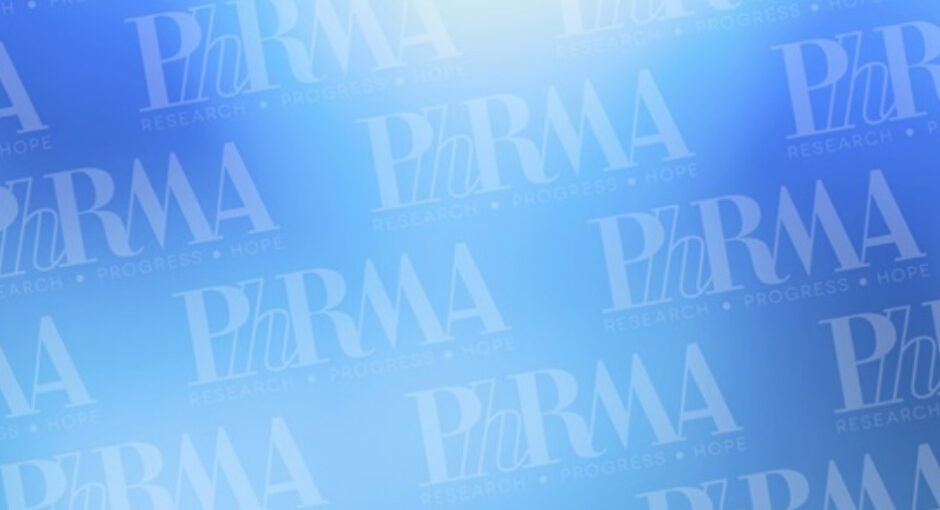The 340B program “has always been uniquely federal in nature” and “there is no room for states, pharmacies, or other interests to step in and try to supplant” the federal government’s exclusive control over it, the brand drug industry said Friday in its latest brief in its lawsuit opposing Arkansas’s unique 340B contract pharmacy law.
Pharmaceutical Research and Manufacturers of America (PhRMA) is suing in federal district court in Little Rock to have state Act 1103 struck down and set aside on the ground that it is preempted by both the 340B statute and the federal Food, Drug, and Cosmetics Act (FDCA). The state Insurance Department and a group of Arkansas 340B covered entities are defending the law. The first-of-its-kind law says drug manufacturers may not:
- Prohibit a pharmacy from contracting or participating with an entity authorized to participate in the 340B program by denying access to drugs that are manufactured by the pharmaceutical manufacturer; or
- Deny or prohibit 340B drug pricing for an Arkansas-based community pharmacy that receives drugs purchased under a 340B drug pricing contract pharmacy arrangement with an entity authorized to participate in 340B drug pricing.
PhRMA’s Oct. 7 brief was in response to the insurance department and covered entities’ arguments in September that Act 1103 is not preempted by either the 340B statute nor the FDCA.
The department and entities both say there is no conflict with the 340B law because it regulates drug pricing and purchasing while Act 1103 regulates drug distribution. The department said it did not interpret Act 1103 as a means to circumvent federal drug safety laws. The entities said the state law requires manufacturers to ship 340B drugs subject to REMS requirements only to those contract pharmacies that are authorized to handle and dispense REMS drugs.
PhRMA’s rebuttal last week reinforces arguments it made in court in August.
The association said there is no gap regarding drug distribution in the 340B statute for states to fill. Moreover, PhRMA continued, Act 1103 does not regulate drug distribution as the state and covered entities argue it does, but instead “attempts to penalize manufacturers for (in the state’s eyes) ‘overcharging’ for 340B drugs”—a pricing issue “already addressed by the federal enforcement scheme.”
PhRMA said even if Act 1103 governs drug distribution and not drug pricing, it still would be preempted because it would conflict with the 340B statute’s prohibition against entities reselling or transferring covered outpatient drugs to a person who is not a patient.
“That bar on transfers of 340B-discounted drugs directly controls the ‘distribution’ of those drugs,” PhRMA said. “Several federal courts will soon be addressing” the federal government’s authority to regulate drug distribution in the context of contract pharmacy arrangements, it noted.
PhRMA strongly disputed the argument that the 340B statute’s prohibition on drug diversion does not come into play in contract pharmacy arrangements because entities retain title to 340B-discounted drugs sold by contract pharmacies.
“The federal statute’s plain language bars both ‘resale’ and ‘transfer’ of 340B-discounted drugs unless the covered entity is providing the drug to its patient,” PhRMA said. “As a matter of plain English, an entity ‘transfers’ something when it hands it off to another entity…. There is no requirement that a covered entity convey formal ‘title’ to violate the transfer prohibition—it only requires that the covered entity transfer the drug to an entity or individual who is not the covered entity’s patient.”
Aside from the lack of requirement addressing holding title to covered drugs, “there is ample publicly available evidence that confirms covered entities do not retain title to 340B-discounted drugs in contract-pharmacy arrangements,” PhRMA said. It cited examples of contracts it found between entities and pharmacies that say explicitly “that the contract pharmacy obtains title to 340B-discounted drugs upon delivery from the supplier.”
Regarding preemption by the FDCA, PhRMA said Act 1103 “purports to require manufacturers to deliver 340B drugs to all Arkansas-based contract pharmacies, even when doing so would violate federal law. That is a textbook case of conflict preemption.”
The insurance department and the covered entities intervening in the case will file another round of briefs on Nov. 4.


